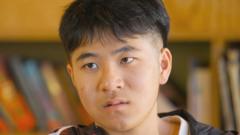A tragic pattern of forced hospitalizations aimed at suppressing dissent has resurfaced in China, as revealed by an investigation. Several individuals, like 18-year-old Zhang Junjie, have reported being detained in psychiatric facilities after protesting the government's policies, often without any legitimate mental health concerns.
Forced Hospitalizations Resurge in China Amid Censorship Crackdown

Forced Hospitalizations Resurge in China Amid Censorship Crackdown
Recent reports reveal the troubling trend of involuntary psychiatric hospitalizations in China targeting dissenters and activists.
Zhang's ordeal began when he protested the country’s strict Covid-19 lockdown measures. After being forcibly taken from his university—under the guise of a Covid test—he was confined to a hospital where he was treated for supposed schizophrenia. His experience isn’t unique; the BBC found that at least 59 others have been similarly hospitalized after speaking out against the authorities, with many subjected to coercive treatment and drugs.
In 2013, China enacted a Mental Health Law aiming to prevent such abuses, requiring voluntary admission to psychiatric facilities. Yet, recent testimonies from a top lawyer indicate a sharp increase in involuntary detentions, attributed to a weakening of legal protections and a rise in police powers. Activists like Jie Lijian faced brutal treatments, including electroconvulsive therapy, after confronting authorities over workers’ rights.
Attempts to expose these abuses face immense challenges, demonstrated by the fate of vlogger Li Yixue, who was reportedly hospitalized after her allegations of police misconduct gained traction online. Medical professionals implicated in these cases claim that the police often initiate admissions for so-called "troublemakers," perpetuating a cycle of political repression.
Experts criticize this manipulation of mental health laws as a blatant violation of human rights, with statistics revealing that few individuals have successfully contested such unfair hospitalizations through legal means. The complex intertwining of politics and psychiatry in China raises critical ethical concerns about the treatment of dissenting voices and the future of civil liberties in the country.
In 2013, China enacted a Mental Health Law aiming to prevent such abuses, requiring voluntary admission to psychiatric facilities. Yet, recent testimonies from a top lawyer indicate a sharp increase in involuntary detentions, attributed to a weakening of legal protections and a rise in police powers. Activists like Jie Lijian faced brutal treatments, including electroconvulsive therapy, after confronting authorities over workers’ rights.
Attempts to expose these abuses face immense challenges, demonstrated by the fate of vlogger Li Yixue, who was reportedly hospitalized after her allegations of police misconduct gained traction online. Medical professionals implicated in these cases claim that the police often initiate admissions for so-called "troublemakers," perpetuating a cycle of political repression.
Experts criticize this manipulation of mental health laws as a blatant violation of human rights, with statistics revealing that few individuals have successfully contested such unfair hospitalizations through legal means. The complex intertwining of politics and psychiatry in China raises critical ethical concerns about the treatment of dissenting voices and the future of civil liberties in the country.
















